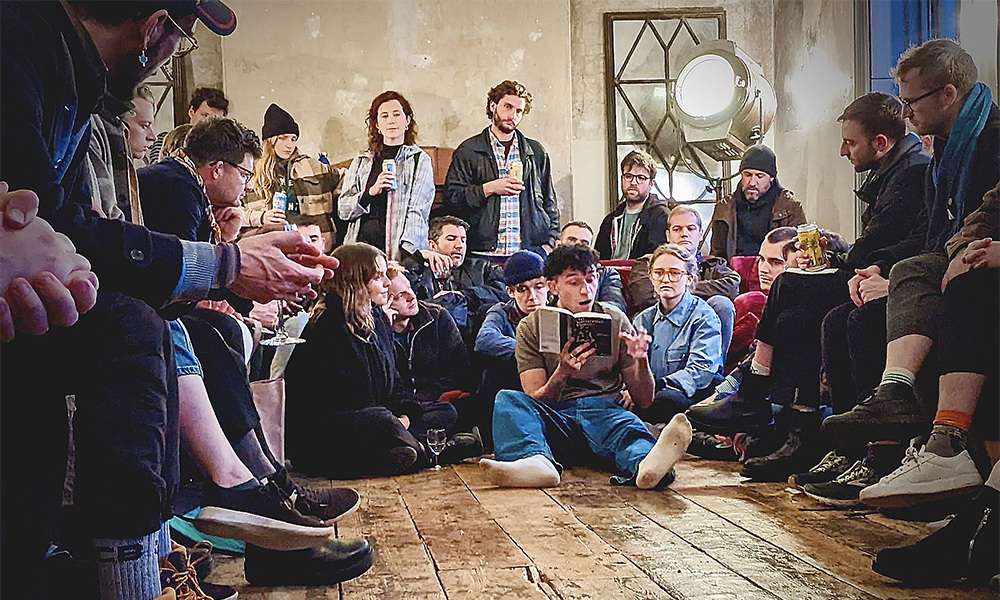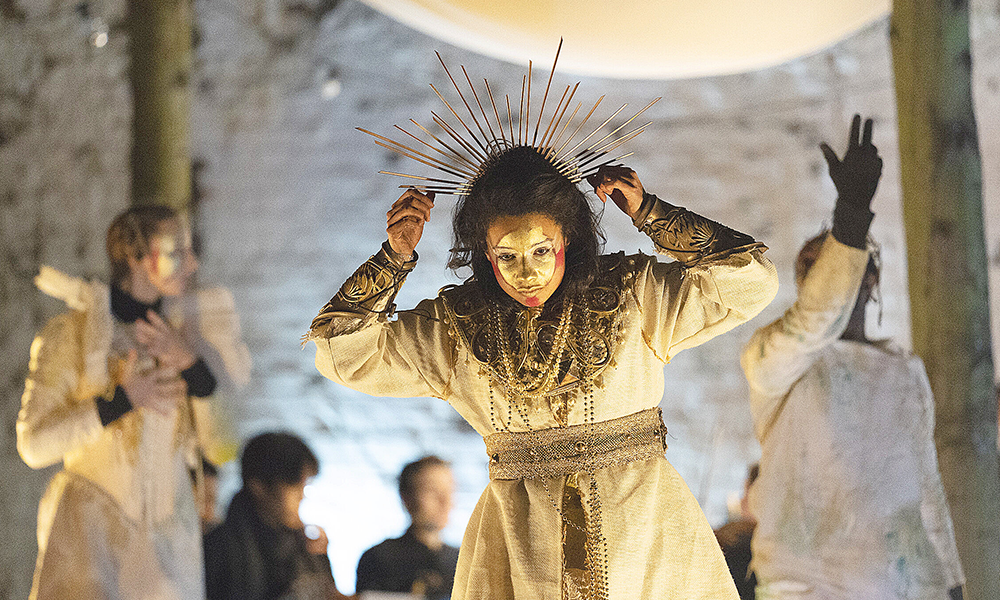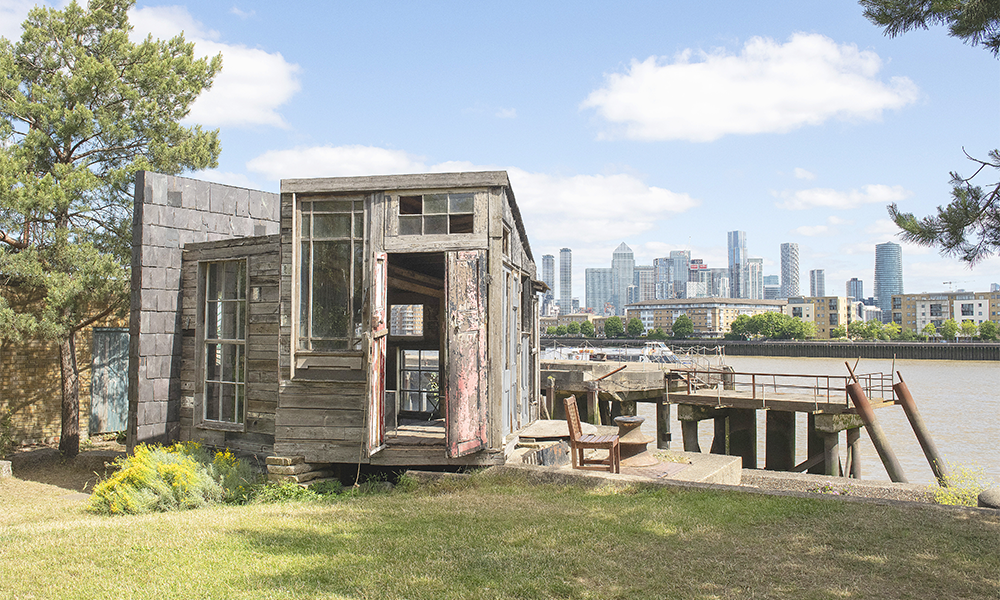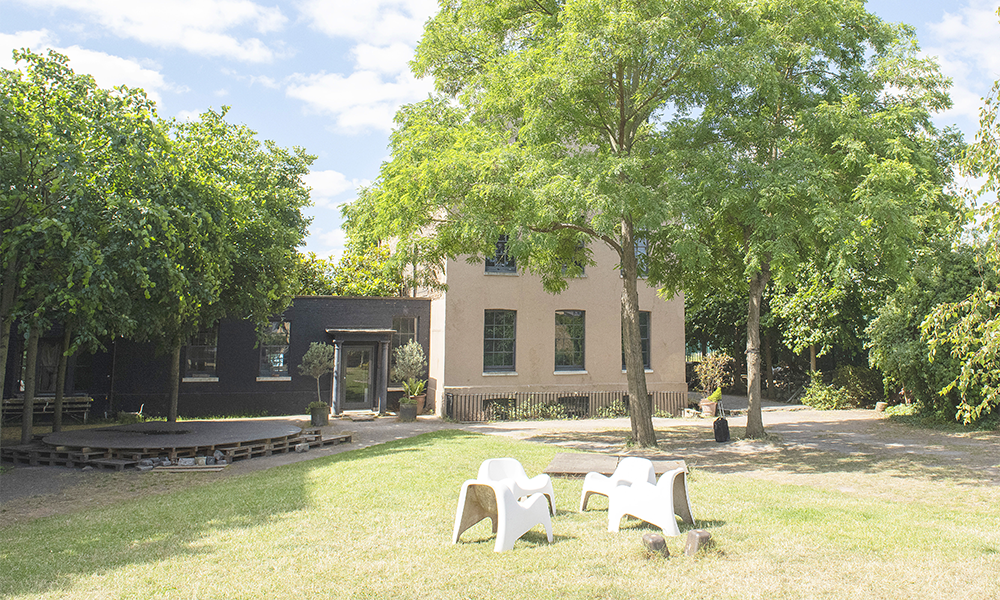Founder Joseph Winters explains how his company, live, eat and develop work together in London

Subscribe to Wharf Life’s weekly newsletter here
BY LAURA ENFIELD
After only a few years navigating the London theatre world, Joseph Winters felt he was going in circles.
“The magic of going to the theatre and sharing a space and imaginative act with lots of other people had been lost,” said the 27-year-old.
“It had become quite similar wherever we were
“You could go to the Almeida, Donmar, Young Vic or the National, walk into a foyer and box office that looked the same, a bar that probably sold relatively similar beer and a room often painted black where actors went in and out of a separate door.
“Being an audience member was increasingly a retail experience rather than communion around a piece of art.”
Working as resident director at the Almeida sparked the desire to run his own theatre and being manager of Fortismere Music Centre gave him the skills to do it.
But, as a freelancer, his discontent grew as he realised he was being forced to battle for work with his fellow creatives and then torn away from them just as they found their rhythm.
“I had this desire to build something where I would have ongoing relationships and wouldn’t feel the sharp severance of opening night,” said Joseph.
“I wanted to find a new way of relating to my own generation.”

So, in 2020, he founded The Shipwright, a communal theatre based in a 500-year-old house in Deptford, where the team, live, eat, create and perform together. But it’s not just any old building.
The Master Shipwright’s House, built in 1513, is one of the few remaining parts of the Royal Dockyard.
He landed there after directing Rupert Everett in play Rush written by Willi Richards, co-owner of the historic building.
“They invited me over,” said Joseph. “We were rehearsing in a dingy room down the road and, when I saw it, I thought: ‘Why aren’t we rehearsing here?’
“There was this amazing day, when we stopped a rehearsal, and had dinner together and didn’t talk about the play at all. The next day, it was so much better.
“That’s when I realised my idea of a communal theatre wouldn’t just be a nice thing, but that the work would get better.”
Willi invited him to move in and take the leap but, just as he did, the first lockdown arrived.
“It felt like a disaster and then immediately we realised we had to build a 200-seat auditorium in the garden,” said Joseph.
“We did it with immense imagination and goodwill from a lot of people.
“Everybody we knew needed something to do during that small window in October – it was all hands on deck and it was done for not a lot of money.”
They opened with opera Dido And Aeneas and sold out. The production was lit with desk lamps, costumes were made out of whatever the company could find.
“It looked ravishing and it captivated everyone’s attention,” said Joseph.
“Audiences came, and that was the most exciting moment – when we knew we’d built something that was going to continue to work, something that relied less on physical production and more on audience imagination.”

The company followed it with a festival of punk cabaret, stand-up, classical music, new and old plays, arthouse film and children’s storytimes led by a drag queen.
Joseph said he realised Deptford audiences were up for risks.
He said: “As an artistic director you are basically saying: ‘I think this is interesting – do you?’.
“Theatre in itself is just a machine for encouraging conversations.
“First, between us and other artists, then between artists in the rehearsal room and ultimately between artists and the audience.”
Since that first flush, Emma Halstead has come in as executive director to help create a more formal structure, but still with the aim of finding the most exciting people to work with.
This summer The Shipwright welcomed a queer cinema collective from Nairobi and, on August 30, will host a world premiere of Bertie Baigent’s new opera based on Paradise Lost.
Joseph said: “Everybody joined in and, if they hadn’t, it wouldn’t have worked.
“The thing that is so magical about the space is that, when people come to join us, they are part of the life of the house.
“Willi and Chris and everyone who lives and works here is at dinner every night talking and working things out.
“The one thing you need to do for young artists is encourage them and the owners have been the most supportive people.
“Willi is absolutely with us – always – and I talk to him all the time about the logistics and why we make work.”
So far everything has been done on a shoestring. This “fraught” move has been made a success through collective effort.
“You start a company and you think it’s going to be lounging around, staring into the eyes of beautiful actors,” said Joseph.
“In fact you spend a lot of time fundraising, begging people to work with you, thinking about toilets.
“There’s often moments when I realise I haven’t had a day off for months. It’s exhausting but also incredibly nourishing.
“That said, when I step out of my bedroom in my pyjamas and someone says: ‘I’ve got a new sketch for the costumes,’ I do think: ‘What have I done?’.
“It’s an experiment to see whether this makes the work and our lives better. We’ve delivered a much more varied, diverse programme and more performances than I was expecting.”

These waves of change have been noticed. The John Hodgson Theatre Research Trust recently gave the company £1,000 to start developing work.
In September it premieres The Gretchen Question by Melly Still and Max Barton, which dissects the climate emergency and is a headline commission for We Are Lewisham.
Joseph said The Shipwright would always remain a place for the people. It runs a pay-what-you-can system, the bar is stocked with locally brewed beers and all staff get at least the London living wage.
“We don’t spend our money on lavish sets, but we pay the bar staff properly,” he said.
“We are in a hostile environment because of the pandemic and global financial situation and I think it will be vital for us to keep asking how the creative community will look in the future.
“Collective living is the way to go. Ages nine to 60 live here in lots of different ways. Once you have lived like this the benefits are overwhelming.”

MEET THE OWNER
For Willi Richards and Chris Mažeika, allowing a theatre company to run in their home wasn’t a big step.
They took their giant leap in 1998 after glimpsing the Master Shipwright’s House over a wall.
“It really is one of the most remarkable houses in London,” said Willi.
“But it was in a very sorry state with floors missing, barely any windows – the garden was a car park. It felt very vulnerable but I could see it was magnificent and wanted to repair and restore it.”
They had only just moved into a modern, minimalist home they’d spent two years building in Deptford. But they gave it up and spent another two years negotiating to buy the former home of master shipwright Joseph Allin.
“It was an incredibly long process, but when you fall in love with something it holds you quite tight,” said Willi.
He and Chris were already heavily involved in the theatre.
Originally from Wales, Willi has worked at RADA since 1992, now teaching there part-time in between his voice training work, writing and directing.
They began filling the house with events straight away and Willi sees The Shipwright as the latest incarnation of the “creative commune”.
“It’s wonderful having your own entertainment on site – you walk out of the kitchen door and there’s a performance going on,” he said.
“I love it, because it feels like living inside a theatre.
“The rhythm of eating, meeting and creating together is very potent.
“I try not to stick my oar in or interfere too much because I am an old hand and this is a new generation thing.”
The couple keep some rooms private and Willi said it was a delight seeing the mix of people who visited their home.
“It’s a real privilege to welcome people into this extraordinary space,” he said.
Read more: How Just Vibez is set to take over Greenwich Peninsula
Read Wharf Life’s e-edition here
Subscribe to Wharf Life’s weekly newsletter here
- Laura Enfield is a regular contributor to Wharf Life, writing about a wide range of subjects across Docklands and east London




One Reply to “Deptford: How The Shipwright houses theatre, creativity and performance”
Comments are closed.